Bosnia and Herzegovina, a country that regained its joy through soccer, after the horror of war.
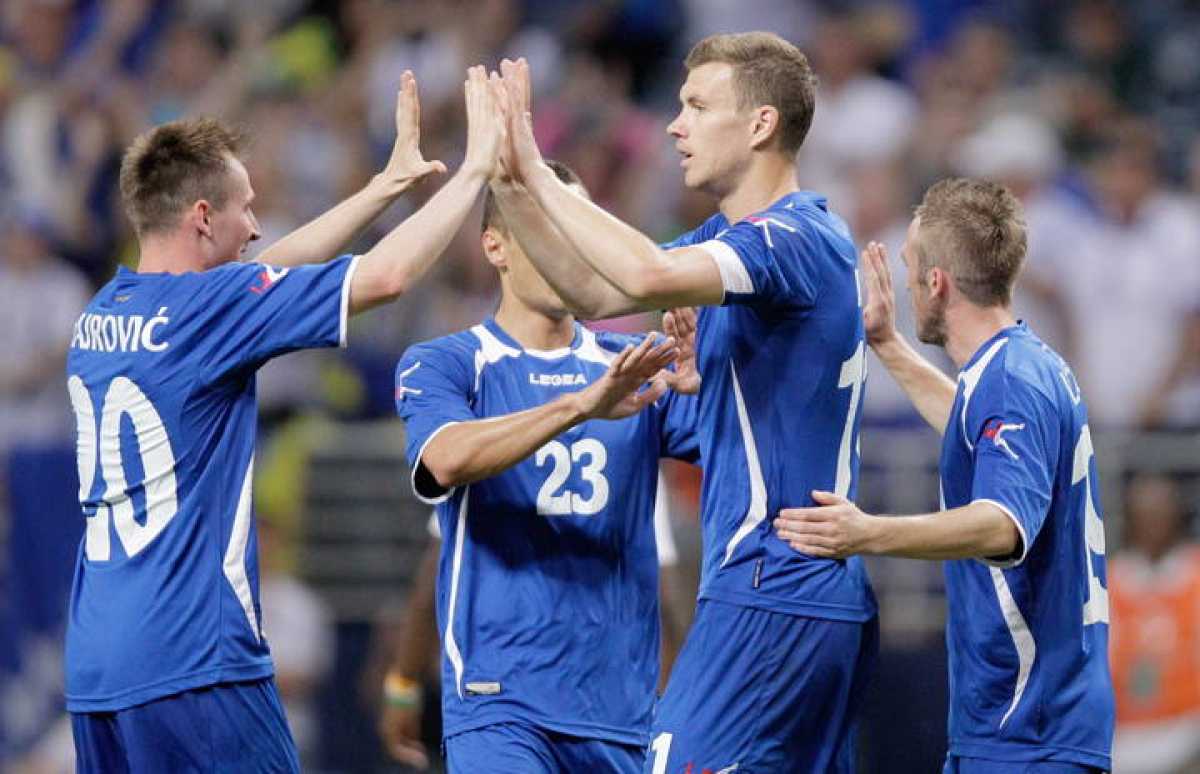
The dismemberment of the former Yugoslavia brought as a consequence in the political and sporting sphere the appearance of new countries in the European firmament. And one of them was Bosnia.
With a background of excellent players (for example the striker Dzeko), it was able to put together a national team and qualify for the first time for the World Cup in Brazil 2014.
The debut was not going to be easy, nothing more and nothing less than against Argentina.
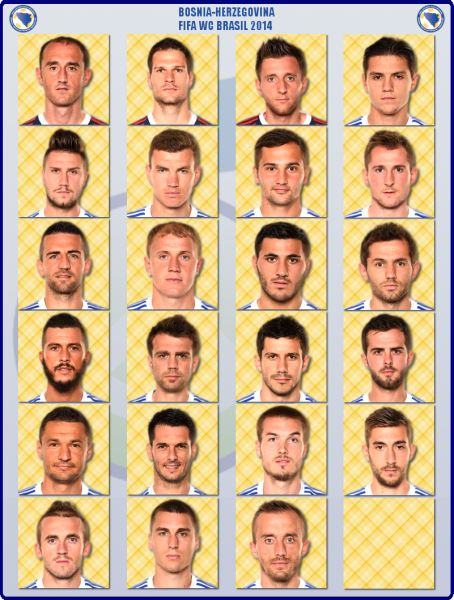
However, in Sarajevo, the joy of the people was a celebration that was shown to the world after the horrors of war.
In the streets of the new capital, people were shouting, but out of joy and not fear. The rumble bombs were for celebration and not bombs that terrorized its inhabitants.
War was a bad memory of the past. Sport was a beautiful memory of the present.
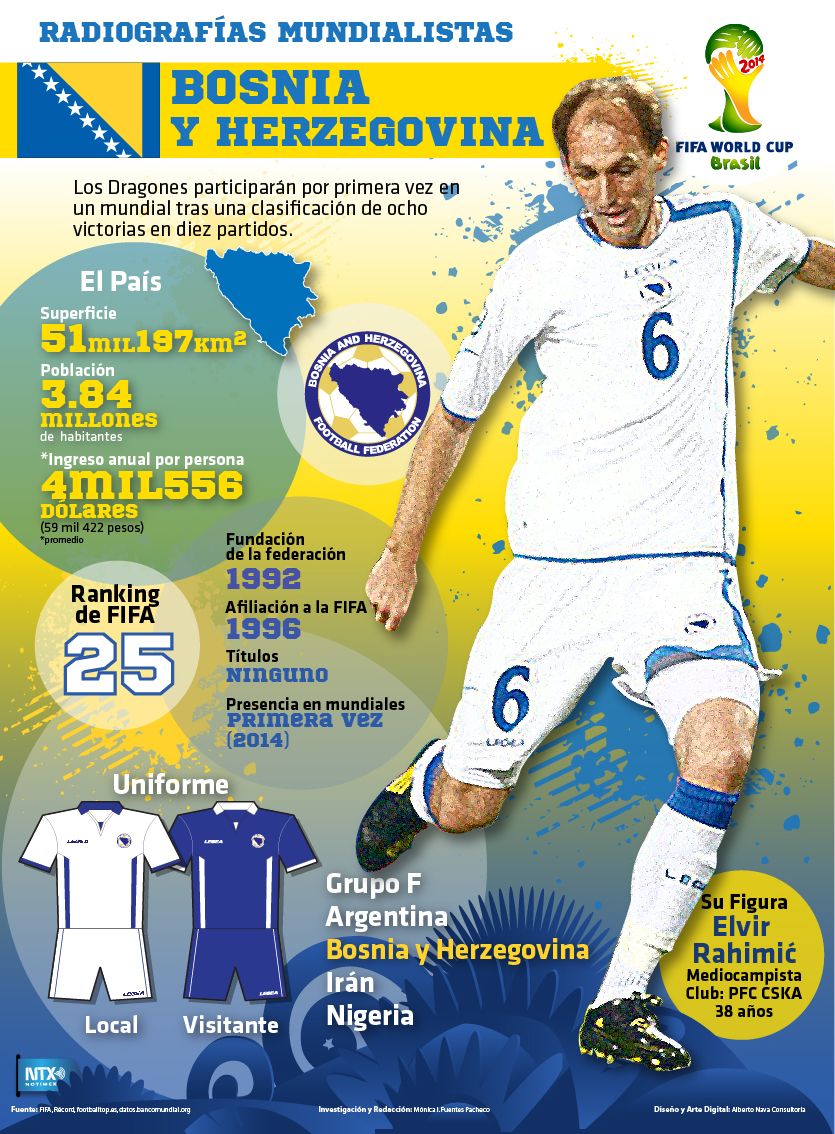
The spaces that television until not so long ago reserved for war conflicts, for fights between armed factions, for the constant number of victims day after day, were now destined to the miraculous qualification for the World Cup in Brazil 2014.
Bosnia-Herzegovina, the new definition, was celebrating the 1-0 victory over Lithuania that allowed them to be present in Brazil 2014. A multicolored party in the streets of Sarajevo. Children on the shoulders of adults, flags in their hands, popular rejoicing of a people that had suffered a lot.
Now sport was giving them back a bit of joy. In a multi-ethnic territory, deeply divided along religious lines, Bosnia-Herzegovina's victory does not represent everyone equally.
Bosnia is made up of Serbs (mostly Orthodox Christians) and Croats (mostly Catholics) who each prefer the sporting victories of their respective countries.
These are the last throes of a fratricidal war whose political grudges still linger on even if they do not manifest themselves in the form of an armed strug
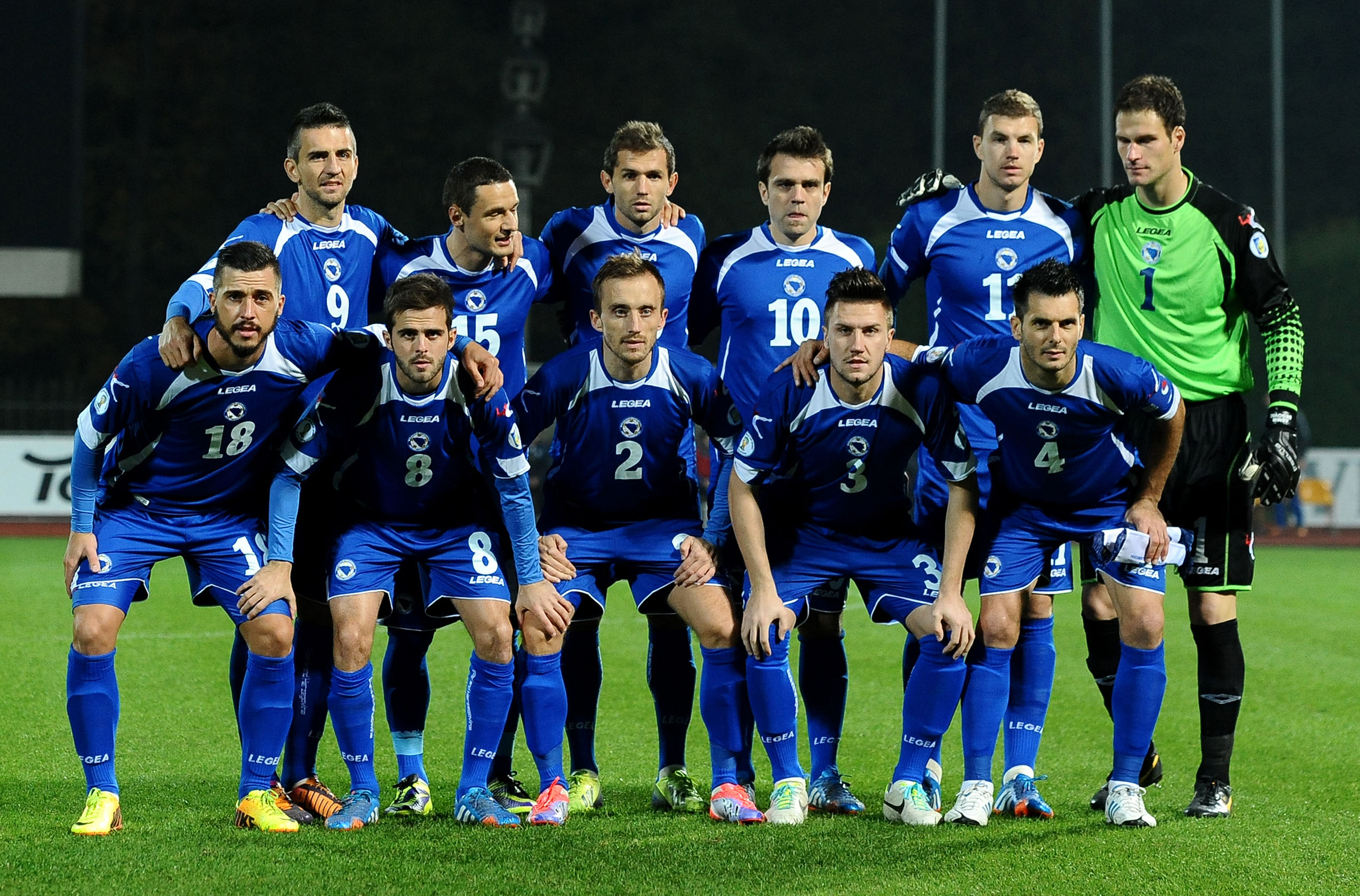
Safet Susic, the greatest Bosnian sports idol, was their coach. In 2004 he was chosen by UEFA as the best Bosnian player of all time and in 2010 France Football, the prestigious sports magazine, chose him as the best player in the history of PSG - Paris Sain Germain. Perhaps now, with the Parisian club's new star-studded lineup, he will be able to continue with that recognition.
It was a heterogeneous selection that pointed more to the quality of its players than to their origin. For example, midfielder Zvjezdan Misimović was the son of Bosnian Serbs and captain Emir Spahic had a Montenegrin father and a Bosnian mother.
They integrated Group G and were a real spectacle: 25 points obtained out of a total of 30 with 8 wins, one draw and only one defeat against Slovakia. 24 goals scored and only 6 conceded. Thirteenth in the FIFA ranking for a brand new team.
The rest is history and statistics.
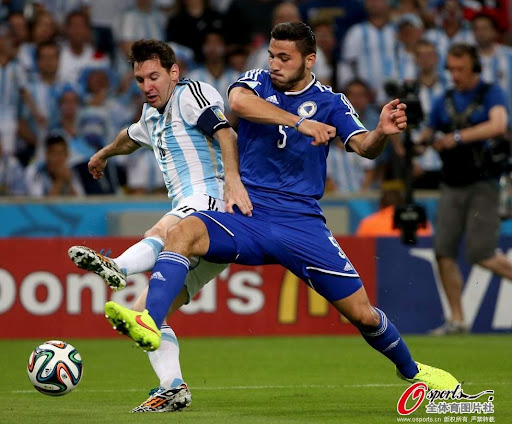
They lost tightly to Argentina in their debut by 2 to 1, with a goal against in the first minutes of the game, to Nigeria in their second presentation by the minimum difference 1 to 0 to close their performance beating Iran by 3 to 1.
They finished the group F third with 3 points, just one point behind second-placed Nigeria, leaving a very good impression.
